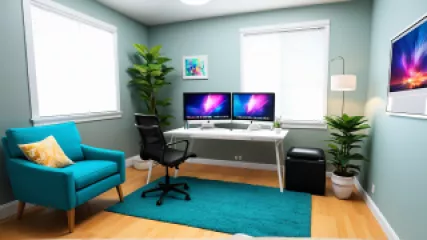How to Start Online Expressive Arts Therapy Sessions
Expressive arts therapy is a powerful therapeutic approach that combines various forms of art, including visual arts, music, movement, and drama, to facilitate self-expression, healing, and personal growth. With the rise of technology and the increasing demand for virtual services, many expressive arts therapists have started offering online sessions to reach a wider audience and provide support to individuals in the comfort of their own homes.
Why Choose Online Expressive Arts Therapy?
Online expressive arts therapy offers numerous benefits for both clients and therapists. Here are some reasons why you might consider starting your own online expressive arts therapy sessions:
- Accessibility: Virtual sessions allow individuals from different geographical locations to access therapy services without the need to travel.
- Convenience: Online sessions provide flexibility in terms of scheduling, making it easier for clients to find a time that works best for them.
- Comfort: Some individuals feel more comfortable expressing themselves creatively in their own environment.
- Cost-effective: Online sessions can be more affordable compared to in-person therapy due to reduced overhead costs.
- Continuity of care: Online therapy ensures that individuals can continue their therapy journey even during times of travel or relocation.
Getting Started with Online Expressive Arts Therapy
If you're interested in offering online expressive arts therapy sessions, here is a step-by-step guide to help you get started:
Step 1: Establish Your Online Presence
Before launching your online expressive arts therapy practice, it's essential to establish a professional online presence. This includes creating a website, setting up social media profiles, and developing marketing materials. Your online presence should reflect your expertise, qualifications, and the unique benefits of expressive arts therapy.
Step 2: Obtain the Necessary Technology
To conduct online sessions effectively, you'll need the right technology. Ensure you have a reliable internet connection, a computer or device with a webcam and microphone, and video conferencing software that supports secure and confidential communication. Familiarize yourself with the chosen platform to ensure a smooth experience for both you and your clients.
Step 3: Adapting Expressive Arts Activities for the Virtual Setting
One of the challenges of online expressive arts therapy is adapting traditional activities for the virtual setting. Explore different ways to engage clients in expressive arts activities using digital tools. For example, you can encourage clients to create art digitally using drawing software or provide them with art supply kits delivered to their homes.
Step 4: Conducting Initial Assessments and Intake Sessions
Prior to starting therapy sessions, conduct initial assessments and intake sessions with clients. This process allows you to gather essential information about their background, goals, and any specific needs or concerns. It also helps establish rapport and build a therapeutic relationship, even in the virtual space.
Step 5: Establish a Safe and Confidential Environment
Creating a safe and confidential environment is crucial for online therapy sessions. Ensure that both you and your clients are in a private space where confidentiality can be maintained. Discuss confidentiality protocols and obtain informed consent from clients regarding the limitations of online therapy.
Step 6: Structure and Facilitate Therapy Sessions
When conducting online expressive arts therapy sessions, it's important to establish structure and guidelines. Clearly communicate session expectations, such as starting and ending times, breaks, and any specific instructions for each activity. Facilitate the sessions with empathy, active listening, and sensitivity to clients' emotions and needs.
Step 7: Provide Ongoing Support and Follow-up
Just like in traditional therapy settings, ongoing support and follow-up are essential in online expressive arts therapy. Regularly check in with your clients to assess their progress, address any concerns or challenges, and provide additional resources or referrals when needed. Encourage open communication and maintain a supportive therapeutic relationship throughout their journey.
Conclusion
Starting online expressive arts therapy sessions can be an exciting and fulfilling endeavor. By following these steps and adapting to the virtual setting, you can offer a valuable and accessible form of therapy that supports individuals in their healing and personal growth.
Art enables us to find ourselves and lose ourselves at the same time.
Thomas Merton






